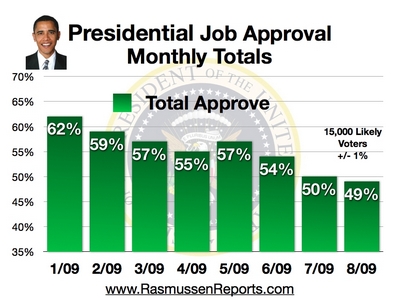When Will It Happen?
Released: 4/10/2008 2:25:36 PM
Reston, VA - North Dakota and Montana have an estimated 3.0 to 4.3 billion barrels of undiscovered, technically recoverable oil in an area known as the Bakken Formation.
A U.S. Geological Survey assessment, released April 10, shows a 25-fold increase in the amount of oil that can be recovered compared to the agency's 1995 estimate of 151 million barrels of oil.
Technically recoverable oil resources are those producible using currently available technology and industry practices. USGS is the only provider of publicly available estimates of undiscovered technically recoverable oil and gas resources.
New geologic models applied to the Bakken Formation, advances in drilling and production technologies, and recent oil discoveries have resulted in these substantially larger technically recoverable oil volumes. About 105 million barrels of oil were produced from the Bakken Formation by the end of 2007.
The USGS Bakken study was undertaken as part of a nationwide project assessing domestic petroleum basins using standardized methodology and protocol as required by the Energy Policy and Conservation Act of 2000.
The Bakken Formation estimate is larger than all other current USGS oil assessments of the lower 48 states and is the largest "continuous" oil accumulation ever assessed by the USGS. A "continuous" oil accumulation means that the oil resource is dispersed throughout a geologic formation rather than existing as discrete, localized occurrences. The next largest "continuous" oil accumulation in the U.S. is in the Austin Chalk of Texas and Louisiana, with an undiscovered estimate of 1.0 billions of barrels of technically recoverable oil.
"It is clear that the Bakken formation contains a significant amount of oil - the question is how much of that oil is recoverable using today's technology?" said Senator Byron Dorgan, of North Dakota. "To get an answer to this important question, I requested that the U.S. Geological Survey complete this study, which will provide an up-to-date estimate on the amount of technically recoverable oil resources in the Bakken Shale formation."
The USGS estimate of 3.0 to 4.3 billion barrels of technically recoverable oil has a mean value of 3.65 billion barrels. Scientists conducted detailed studies in stratigraphy and structural geology and the modeling of petroleum geochemistry. They also combined their findings with historical exploration and production analyses to determine the undiscovered, technically recoverable oil estimates.
Read the rest if you dare.
What about the Natural Gas Report on areas in Oregon and Washington? This report was completed this year and WOW. Seems we have plenty of gas and oil here as well.
Maybe the Oil in Western Colorado would get noticed. This is a rather sizable find for surveying only a 35 square mile area.
Maybe a look at the USGS map or oil and natural gas surveys would help?
Since nobody is doing anything about this, perhaps you could write your elected officials and get the ball rolling. I did.
Labels: America, Energy, Environment, Technology
Thursday, September 24, 2009
Global Warming Con

 The GW nuts need to make there big push now before anyone sees what is really happening. Don't let them destroy our lives with this con. You now know the truth. Tell others. Point them here, so they can read this. Then go check it out.
The GW nuts need to make there big push now before anyone sees what is really happening. Don't let them destroy our lives with this con. You now know the truth. Tell others. Point them here, so they can read this. Then go check it out.Labels: Environment, Time
Tuesday, September 22, 2009
Sunday, September 20, 2009
Looking at Baucus Healthcare
Baucus Health Care "Reform" Bill Pushes Doctors to OK Rationing for Seniors
by Steven Ertelt
Washington, DC (LifeNews.com) -- The Baucus health care "reform" bill that is quickly becoming the potential alternative to the Kennedy bill and HR 3200 includes abortion subsidies and mandates. Additional analysis also shows the legislation includes health care rationing that would cause problems for senior citizens.
Burke J. Balch, an attorney and the director of the medical ethics center at the National Right to Life Committee, has examined the entire bill.
He points to language on pages 80-81 regarding Medicare physician payments as a concern.
"Beginning in 2015, payment would be reduced by five percent if an aggregation of the physician's resource use is at or above the 90th percentile of national utilization," the Baucus bill says. "After five years, the Secretary would have the authority to convert the 90th percentile threshold for payment reductions to a standard measure of utilization, such as deviations from the national mean."
Balch says the language clearly makes it so doctors are pushed financially into provided less care for seniors by being urged to purchase cheaper medical tests and phase out costly treatments.
"The provision penalizing doctors establishes that for at least five years, Medicare physicians who authorize treatments for their patients that wind up in the top 10% of per capita cost for a year will lose 5% of their total Medicare reimbursements for that year," he explains to CBN News' David Brody.
"This means that all doctors treating older people will constantly be driven to try to order the least expensive tests and treatments for fear that they will be caught in that top 10%," Balch adds.
"Note that this feature operates independently of any considerations of quality, efficiency, or waste; if you authorize enough treatment for your patients, however necessary and appropriate it may be, you are in danger of being one of the 1 in 10 doctors who will be penalized each year," Balch adds. "Moreover, it creates a moving target by definition, there will ALWAYS be a top 10%, no matter how far down the total amount of money spent on Medicare is driven."
The conclusion for the pro-life attorney is that medical care will indeed face rationing.
"The incentive this creates is purely cost-driven, without any balancing of benefit," he says to CBN News. "It will create a constant sense of uncertainty in doctors, since none can know in advance precisely what the cutoff for a given year will be resulting in still more pressure to limit treatment and diagnostic tests to the bare minimum."
David N. O'Steen, the NRLC executive director, previously communicated with LifeNews.com about the rationing components.
"With respect to rationing, the proposal contains a Medicare provision that, beginning in 2015, would severely financially penalize physicians who are in the top 10% of medical resource use," he explained.
"This provision does not link funding to outcomes or quality; instead, it will force a 'race to the bottom' with relentless pressure on doctors to limit health care for their older patients," O'Steen adds. "On top of the significant Medicare cuts in the bill, this will gravely endanger the lives of America's senior citizens."
Link to the article above.
With the obvious fact that there will always be a top 10%, there is no end to the depths of depravity one can achieve with this motivational factor. Instead of creating an incentive based program that raises standards, we have a program that ultimately rushes people to deaths door. How will the medical establishment deal with their oath and their wallet?
Wednesday, September 16, 2009
How 'bout a real single-payer system?
Many years ago, as a small child, I was told one of those old-fashioned fables for children. It was about a dog with a bone in his mouth, who was walking on a log across a stream.
The dog looked down into the water and saw his reflection. He thought it was another dog with a bone in his mouth – and it seemed to him that the other dog's bone was bigger than his. He decided that he was going to take the other dog's bone away and opened his mouth to attack. The result was that his own bone fell into the water and was lost.
At the time, I didn't like that story and wished they hadn't told it to me. But the passing years and decades have made me realize how important that story was, because it was not really about dogs but about people.
Today we are living in a time when the president of the United States is telling us that he is going to help us take that other dog's bone away – and the end result is likely to be very much like what it was in that children's fable.
Whether we are supposed to take that bone away from the doctors, the hospitals, the pharmaceutical companies or the insurance companies, the net result is likely to be the same – most of us will end up with worse medical care than we have available today. We will have opened our mouth and dropped a very big bone into the water.
While I was told a story in my childhood to help me understand something about the real world, today adults are being told things to reduce them to childish thinking.
The most childish of all the things being said in the august setting of a joint session of Congress last week was that millions of people can be added to the government's health insurance plan without increasing the federal deficit at all.
If the president of the United States could do that, it is hard to imagine what he would do as an encore. Walking on water would be an anticlimax.
Continue Reading the rest Here.
Tuesday, September 15, 2009
What Does Healthcare Really Cost?
The third party system has everything so confused that people don't have a clue what anything really costs. If you don't know the cost how can you implement cost controls? I have discussed before the problems with third party payer systems.
Understanding The Healthcare Debate
This video does a great job of demonstrating the point.
H/T to Left Coast Rebel for pointing out this video.
Monday, September 14, 2009
He Who Lies Most
That is the closing Paragraph to a great article written by Ralph Reed. BO repeatedly lied and this article does a great job of pointing out the lies and explaining the issues.
Read Obama’s Congress Speech Full of Lies
Sunday, September 13, 2009
When Someone Says It That Plain
Plain and simple from an elected official who understands the principals and values of America. There are a few of our elected officials who actually know who they work for.
H/T to my friend over at What's The Word?
Friday, September 11, 2009
Thursday, September 10, 2009
Further Analizing Government Spending
Seems like only a few people can see the flaw. If they do see it, no one will admit to it. Congress is so busy trying to find ways to spend. We need to save! We need to stop spending and start doing what is hard. We send people to congress to do the hard things to improve and keep America great. They are constantly avoiding their real job.
I hope "We the People" are paying attention and seriously rethinking how we elect people to office. It is time for a change. It is time to restore America.
The Word Trillion Keeps Coming up.
Check out How Many Trillion Will That Cost for other fun facts. Until we understand how much this is really costing us, we will continue down this path.
Wednesday, September 09, 2009
Do You Need More Expenses at Your House
Why is the solution to big debt and deficits, more debt and deficits?
The American people have had to live on a budget. We have had to stay within our means. We even have to put something away for rainy days.
Could someone explain this to a liberal or a congress critter?
Labels: Health
Tuesday, September 08, 2009
Truth Can Be Painful and Funny
I have to lighten up once in a while. With this guy in office, we need more humor and less government involvement. In case you missed it, they're back in DC and looking to take more of you and your children's money.
This guy better start working on saving his own ass, because the silent majority is rising up. The conservatives out number the nuts and we have had enough. It is time to remind our representatives who they work for.
I love this track. Go ahead Play it again.
Sunday, September 06, 2009
National Debt
This is a video based back to May 15th of 2009. I would love to see this updated considering all the chaos and spending that has occurred since then. The hypocracy is clear in this video. The point should also be made that both W Bush and BO are spending way to fast. We need to slow down and fall back to constitutional constraints.
Saturday, September 05, 2009
Another Good Healthcare Idea
How to Insure Every American
We don't need radical change. Subsidies and high risk pools can get the job done.
By JOHN SHADEGG AND PETE HOEKSTRA
When was the last time you asked your doctor how much it would cost for a necessary test or procedure? In all likelihood, you can't remember. That's because your employer-provided health plan or the government "paid for it." In fact, you paid. We all pay for health care.
There's no denying that our health-care system is complex. However, we can trace most of the problems in the current system to the lack of control individuals and families have over their care. If there's one lesson we've taken away from the thousands of citizens at town-hall meetings, it's that one massive health-care bill isn't the solution. Americans nationwide have voiced their desire for greater control over their care and for reform in digestible pieces.
Here's how the debate over health-care reform breaks down, and what we believe Congress can do to solve these crucial issues.
•Costs and Control. The health-care reform debate centers on how to lower the cost of care, and who should ultimately control health-care decisions. Under the current system, nobody is focused on controlling costs.
Roughly 60% of all health care in America is employer-provided. This third-party payment structure has divorced the consumer—the patient—from the real cost of services. It encourages excess spending, runaway lawsuits, defensive medicine (doctors ordering unnecessary tests and procedures out of fear of being sued), and huge malpractice premiums.
President Obama and Democrats in Congress say that a new federal health-care bureaucracy and a so-called public plan is the answer. They are wrong.
Government has caused the problems we face in health care. Our tax code incentivizes employer-provided health care, rewards health insurance companies by insulating them from accountability, and punishes those who lack employer-provided care.
Every night on television there are dozens of commercials from Geico, Progressive, Allstate and other companies offering us better auto insurance at lower costs. But there are virtually no commercials for health insurance. This is because the federal government protects health insurance companies from real competition. Insurers don't have to market to consumers. They only have to satisfy employers. In addition, a person living in New York, for example, is currently only permitted to purchase individual insurance in New York. Allowing competition across state lines would drive down cost tremendously.
We believe the solution to this problem is patient choice. What appears to be a free market in health care today is not. The health-care market is a stacked deck that favors insurance companies rather than patients.
We must stop punishing Americans who buy their own plan by forcing them to purchase their care with after-tax dollars, making it at least one-third more expensive than employer-provided care. Individuals should be able to take their employer's plan, or turn it down and select insurance of their own choosing without any tax penalty.
•Pre-existing Conditions. Americans agree that no one should go bankrupt because of a chronic disease or pre-existing conditions like multiple sclerosis or breast cancer.
In 2006, the Republican Congress and President Bush passed legislation encouraging states to create "high-risk" pools where those with pre-existing conditions could receive coverage at roughly the same rates as healthy Americans. State-based high-risk pools spread the cost of care for those with chronic diseases among all insurers in the market. The additional cost of their care is subsidized by the government.
Unfortunately, some states have not created high-risk pools, and some need to be restructured to ensure timely access to care. Republicans have proposed fixing this problem by expanding and strengthening this safety net, and by creating reinsurance or risk-adjustment pools so that Americans with chronic medical conditions can get the care they need at an affordable cost.
•Uninsured Americans. Most Americans recognize that the quality of health care in the U.S. is excellent. Thousands of foreigners come to America to get care each year; in 2008, some 400,000 people traveled here for treatment. The five-year survival rates for all cancers beat the rates in Canada, Europe and England. The problem is that some in America cannot access this care.
Republicans and Democrats agree that we should cover all Americans. In large part, we already do. Anyone in the country can walk into an emergency room and receive care regardless of his or her ability to pay.
The political disagreement is not whether to cover everyone, but how to do so. The president and congressional Democrats say we should create a new government-run plan, outlaw the health coverage Americans enjoy today, and let federal bureaucrats control the content and price of health plans. Their bill, H.R. 3200, is filled with more than a thousand pages of new mandates, penalties, regulations and taxes. It is nothing short of a complete takeover of the entire health-care system by Washington politicians.
We believe that all Americans deserve the ability to select health-care coverage that meets their needs—not the preferences of politicians. Republicans in Congress want to empower Americans to make their own choices by providing a dollar-for-dollar tax credit for you to purchase the plan of your choice. Those who cannot presently afford coverage would be able to select and purchase their own plan using a health-care voucher provided by the federal government.
If we give citizens the ability to control their own care, cover pre-existing conditions, and provide resources to the uninsured, we will have fixed health care in America. No bureaucrats. No new czars. No mandates. Just choice and coverage for every American.
Mr. Shadegg is a Republican congressman from Arizona. Mr. Hoekstra is a Republican congressman from Michigan.
Will the left stop saying the republicans don't have a plan.
Friday, September 04, 2009
The Political Mood has Changed
Trust on Issues | Dem | GOP | Links | ||
|---|---|---|---|---|---|
National Security | 43% | 47% | |||
War in Iraq | 42% | 42% | |||
Health Care | 41% | 44% | |||
Economy | 40% | 46% | |||
Social Security | 39% | 43% | |||
Education | 38% | 41% | |||
Abortion | 36% | 46% | |||
Taxes | 35% | 51% | |||
Immigration | 35% | 43% | |||
Gov't Ethics/Corruption | 34% | 31% | |||
Select above: A = Article, C = Crosstabs, T = Trends | |||||
With the exception of the tie on Iraq the wrong group is in power based on the opinion of the people. 51% Say Congress is Too Liberal, 22% Say It’s Too Conservative. Wait, I forgot to point out that issues of ethics and corruption are led by Democrats.
 With public opinion falling fast the left is still pressing forward as hard and as fast as possible. I am making every effort I can to hold them back and speak out about the poor choices they are making. Often I find people looking to me to lend some reason and possible hope to a very bad economy. I tell them what I think and why. It doesn't look pretty.
With public opinion falling fast the left is still pressing forward as hard and as fast as possible. I am making every effort I can to hold them back and speak out about the poor choices they are making. Often I find people looking to me to lend some reason and possible hope to a very bad economy. I tell them what I think and why. It doesn't look pretty.Labels: America, Business, Democrat, Economy, Republican
Thursday, September 03, 2009
Making the Dollars Count

Seems we are so busy dividing that nothing is getting done. And what does get done wasn't done right or worth doing.

If your an advertiser, take advantage of high exposure and drive more customers to your business. If you don't like what the program contains stop watching it. Your part of the ratings numbers too. Your obsession has brought the advertisers here and now you want to punish them for going where your leading.
Labels: Business, Freedom, Responsibility



















